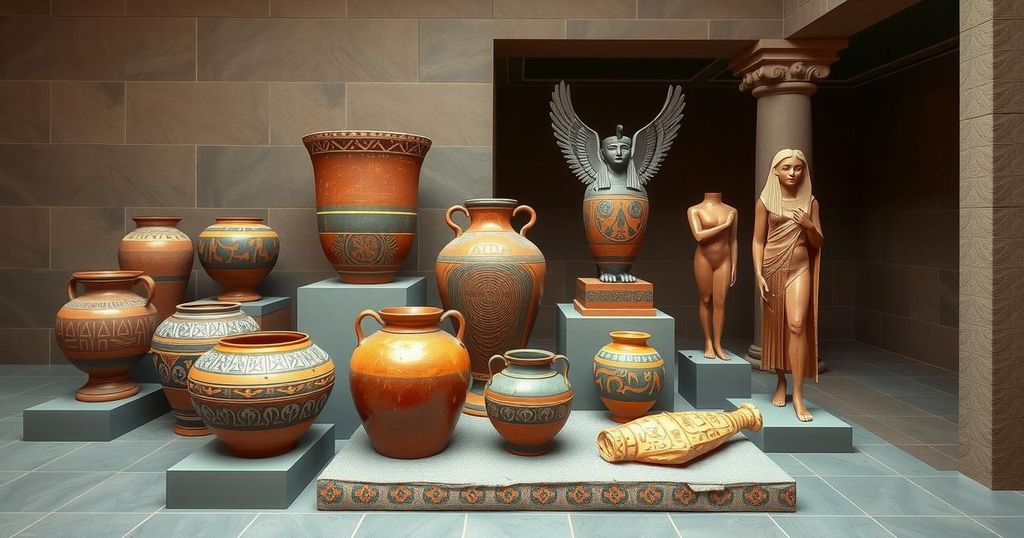Discoveries in Egyptian Archaeology Illuminate Ancient Civilization

Recent archaeological discoveries in Egypt reveal significant insights into ancient civilization, with findings such as burial sites and underground tunnels prompting further study and highlighting preservation challenges. Increased collaboration between experts aims to protect these sites from modern threats.
Recent archaeological initiatives in Egypt have brought significant discoveries to light, showcasing the country’s ancient history. Excavations have unearthed artifacts, tombs, and structures that offer insights into the civilization that flourished along the Nile thousands of years ago. These findings not only enhance our understanding of Egyptian culture but also draw attention to the ongoing efforts to preserve the past amid modern challenges.
Among the noteworthy discoveries is a burial site believed to belong to high-ranking officials from the time of the Pharaohs. These graves contained intricate jewelry and pottery, hinting at the luxurious lives the deceased once led. University representatives and experts in Egyptology speculate that such discoveries may highlight the social structure of ancient Egypt, particularly regarding the elite class’s burial practices.
Furthermore, researchers in Luxor recently identified a series of underground tunnels that may have been part of a larger ancient transportation network. This revelation has intrigued historians who are eager to learn how these tunnels were utilized in trade and communication across distances. The discovery underscores the innovative engineering skills of the ancient Egyptians and raises questions about the infrastructure that supported their monumental architecture.
As these discoveries unfold, there are also concerns regarding the protection of archaeological sites from urban development and looting. Experts are advocating for stronger regulations and increased funding for preservation efforts. The significance of these ancient sites speaks volumes about Egypt’s historical identity, yet they are increasingly vulnerable to modern-day threats.
In light of these developments, academic collaborations are on the rise, aimed at sharing knowledge and resources to better protect Egypt’s archaeological heritage. Joint international efforts strive to ensure that future generations can learn about and appreciate the rich tapestry of Egypt’s past. The ongoing dialogue among archaeologists, historians, and government officials is crucial in safeguarding these treasures, and it is clear that the story of Egypt’s ancient civilization is far from over.
In summary, recent archaeological efforts in Egypt have yielded important discoveries that deepen our understanding of the ancient civilization’s cultural and social dynamics. From high-ranking burial sites to underground tunnels, these findings illuminate the innovative practices of the Egyptians. However, the threats posed by modern development and looting underscore the urgent need for preservation efforts. Collaborative international initiatives may play a pivotal role in safeguarding Egypt’s archaeological heritage for future generations.
Original Source: www.ncnewsonline.com








